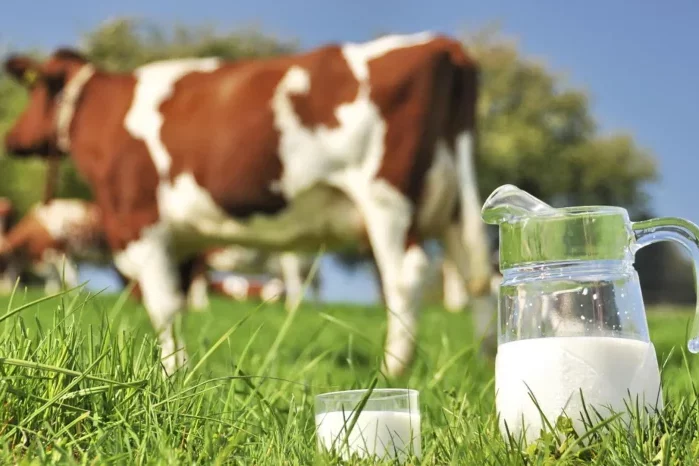Blood glucose, often referred to as blood sugar, is a critical component of our body’s energy system. Understanding how diet influences blood glucose levels is essential, especially for those managing conditions such as diabetes. This article delves into the science of blood glucose, the impact of carbohydrates, the role of fiber, the concepts of glycemic index and glycemic load, effective meal planning, the significance of a balanced diet, monitoring techniques, the influence of exercise, and the importance of consulting healthcare professionals.
Explanation of Blood Glucose: Define Blood Glucose and Its Role in the Body’s Energy System
Blood glucose is the concentration of glucose present in the blood. It serves as the primary source of energy for the body’s cells. After consuming food, carbohydrates are broken down into glucose, which enters the bloodstream. The hormone insulin, produced by the pancreas, helps cells absorb glucose to be used for energy. Excess glucose is stored in the liver and muscles as glycogen for future energy needs. Maintaining balanced blood glucose levels is crucial for overall health, as significant fluctuations can lead to conditions like hypoglycemia (low blood sugar) or hyperglycemia (high blood sugar), both of which can be harmful.
Impact of Carbohydrates
Carbohydrates are the main dietary factor affecting blood glucose levels. Upon digestion, carbohydrates convert into glucose, which enters the bloodstream and raises blood glucose levels. The type of carbohydrate consumed significantly influences this process.
Simple vs. Complex Carbohydrates
Simple carbohydrates, found in foods like candy, soda, and some fruits, consist of one or two sugar molecules and are quickly digested, leading to rapid spikes in blood glucose. Complex carbohydrates, found in whole grains, legumes, and vegetables, have longer chains of sugar molecules, taking more time to break down, resulting in a more gradual increase in blood glucose levels.
Role of Fiber
Dietary fiber, particularly soluble fiber, plays a crucial role in moderating blood glucose levels. Fiber slows the digestion and absorption of carbohydrates, leading to a more gradual rise in blood glucose. High-fiber foods include fruits, vegetables, legumes, and whole grains. Incorporating these foods into your diet can help prevent blood glucose spikes and improve overall glucose control.
Glycemic Index and Load
The glycemic index (GI) measures how quickly foods cause blood glucose levels to rise. Foods are ranked on a scale from 0 to 100, with higher values indicating faster spikes in blood glucose. Glycemic load (GL) considers both the GI and the amount of carbohydrate in a serving, providing a more accurate representation of a food’s impact on blood glucose levels.
Low GI Foods: (<55) Whole grains, legumes, non-starchy vegetables
Medium GI Foods: (56-69) Brown rice, sweet potatoes, some fruits
High GI Foods: (>70) White bread, sugary snacks, processed foods
Meal Planning
Effective meal planning is vital for maintaining stable blood glucose levels. Here are some strategies:
Regular Meal Times: Eating at consistent times helps regulate blood glucose levels.
Portion Control: Managing portion sizes prevents overeating and blood glucose spikes.
Balanced Meals: Include a mix of carbohydrates, proteins, and fats to slow digestion and absorption of glucose.
Balanced Diet
A balanced diet includes appropriate amounts of carbohydrates, proteins, and fats, each playing a role in blood glucose control.
Proteins: Slow the digestion of carbohydrates, helping prevent rapid spikes in blood glucose.
Fats: Provide sustained energy and slow the absorption of glucose. However, focus on healthy fats like those from avocados, nuts, and olive oil.
Balancing these nutrients helps maintain steady blood glucose levels and supports overall health.
Monitoring Blood Glucose
Monitoring blood glucose levels is essential for managing and understanding how different foods affect your body. This can be done using blood glucose meters or continuous glucose monitors (CGMs).
Blood Glucose Meters: Portable devices that measure glucose levels using a small blood sample.
Continuous Glucose Monitors (CGMs): Devices that provide real-time readings of glucose levels throughout the day and night.
Regular monitoring helps identify patterns and adjust dietary and lifestyle choices accordingly.
Exercise and Lifestyle
Exercise is a powerful tool for managing blood glucose levels. Physical activity increases insulin sensitivity, allowing cells to use glucose more effectively.
Incorporate Physical Activity: Aim for at least 150 minutes of moderate-intensity exercise per week, including activities like walking, cycling, and swimming.
Consistency: Regular exercise is more beneficial for blood glucose control than sporadic intense workouts.
Lifestyle factors such as stress management and adequate sleep also play a role in maintaining stable blood glucose levels.
Medical Consultation
For personalized advice, it is essential to consult healthcare professionals. Dietitians and diabetes educators can provide tailored guidance based on individual needs and conditions.
Dietitians: Offer expertise in nutrition and meal planning.
Diabetes Educators: Provide education on managing diabetes, including blood glucose monitoring and lifestyle adjustments.
Working with healthcare professionals ensures a comprehensive approach to managing blood glucose levels effectively.
Conclusion
Understanding how diet affects blood glucose levels is crucial for maintaining overall health, particularly for individuals managing diabetes. By focusing on the type of carbohydrates consumed, incorporating fiber, understanding glycemic index and load, planning balanced meals, and monitoring glucose levels, one can achieve better blood glucose control. Additionally, regular exercise and consulting healthcare professionals play significant roles in this process. Adopting these strategies can lead to improved health outcomes and a better quality of life.
Related Topics



























